- Home
- Sharyn McCrumb
The Ballad of Frankie Silver Page 2
The Ballad of Frankie Silver Read online
Page 2
Martha Ayers leaned against the back of the other deck chair. “I’m on break,” she told him. “Can’t stay long, but I thought I’d see if there’s anything you needed. Glass of water? Pills?”
He shook his head. “I’m fine.”
“I brought you your mail,” she said. “But only because you insisted.”
“I appreciate it, Martha.”
He was still too thin, and his cheekbones were still too prominent, making him look haggard, she thought, but some of the color was coming back to his cheeks. The gray sweatshirt and sweatpants he wore hid the bandages. “Pull up a chair,” he said. “You’ll excuse me if I don’t get up.”
Martha snorted. “I’d like to see you try. I’ll have your mother over here faster than white on rice. And don’t think I didn’t see you over there at the railing waving at me when I drove in. I should report you to Miss Jane.”
He grimaced. “The training academy didn’t do anything for your sweet disposition, did it, Martha? How are things at the office?”
“It’s a good thing I came back when I did,” said Martha. She considered the deck chair for a moment, and then sat down in one of the wrought-iron garden chairs. “LeDonne may think he’s Superman, but even he can’t pull two shifts a day seven days a week. He’s nobody’s idea of a diplomat, either. But we manage.”
“Any arrests?”
“Nothing to speak of.” Her tone told him that he wasn’t going to get any details from her. “If you had any sense, Spencer, you’d just lie back in that lawn chair and drink your iced tea without giving the department another thought. Lord knows you could use the rest, and I’ve been telling you so for years now. Trust you to get shot before you’d take my advice.”
Sheriff Arrowood smiled. “Well, Martha, all I can say is: I wish I’d got shot at the beach, or maybe in Hawaii, because this business of laying around the house with nothing to do but watch talk shows is about as dull as ditchwater. The view is nice, but it doesn’t change enough to keep me occupied. I’ve taken to spying on the deer in the evenings. I try not to meddle in the department business, but sometimes the boredom is overpowering.”
“Sounds like you’re feeling better then,” said Martha. “This time last week, you weren’t nearly this feisty. I guess we’ll have to take your car keys soon.”
“I’m fine. Cooking my own meals even. You want some lunch? I have a whole freezer full of frozen dinners.”
“I can’t stay that long,” she told him. “This is my lunch break, but I ate an apple on my way up the mountain to check on you.”
He smiled as he sifted through the stack of letters-mostly junk mail, brochures for various law enforcement-related products, but among the few first-class envelopes he saw an official-looking one from Nashville with the state seal of Tennessee incorporated in the design of the return address.
“What’s this?”
Martha sighed. “I knew I should have left that one on your desk. It looks like the state wants something from us, which means you’ll either be filling out more forms in triplicate or else driving all over creation going to committee meetings.”
He tore open the letter and began to scan its contents. “I can always plead ill health if they-”
“What is it? What’s wrong?”
Spencer’s pale face had gone gray, and he was staring at the letter as if he’d forgotten that she was there. Martha clenched her fingers around the iron rim of the garden seat, wondering if she ought to run into the house and phone the rescue squad. The sheriff was supposed to be recovering nicely from the operation that removed a bullet and his injured spleen, but she supposed that even a week later something might go wrong. A blood clot, perhaps? She wondered if her rudimentary knowledge of first aid would be of any use.
“I’m fine, Martha.” He didn’t look up, and his voice had that perfunctory tone that meant he wasn’t listening. He was staring past her, gazing at the white-flowering dogwood tree as if he expected it to walk away.
“Don’t give me that,” said Martha. “What’s in that letter? You looked better right after you’d been shot. Tell me what’s wrong.”
He handed her the letter. “I’ve been invited to an execution.”
The waiting was the hardest part. Spencer had given his testimony hours earlier, but he was still dressed in his dark suit and starched white shirt, feeling as if he, not the defendant, were on trial.
Closing arguments had ended a little after four, and the jury had filed out to begin their deliberations in the case of the State of Tennessee v. Fate Harkryder. Now there was nothing to do but wait. He sat awkwardly on the bench in the reception room of the sheriff’s office, hot and uncomfortable in the unaccustomed business suit. It was just as well that he wasn’t set to go out on patrol that night. He was too jumpy to be much good at it.
Spencer had testified in court cases before, of course, but those trials had been insignificant compared to this one. In previous cases the defendants had faced fines or a few weeks in the county jail at most if his testimony helped to convict them. This time it was a matter of life or death. He felt solemn, weighed down by the fate of the prisoner. He also felt angry at him for committing a vicious and senseless crime and setting this chain of events in motion, soiling so many lives with his recklessness.
“Why don’t you go on home?” asked Nelse Miller, sitting down on the bench beside him.
Spencer shrugged. “Can’t. The jury might come back early, and then we’d have to take the prisoner back to the courtroom. I figure-what with his family and all-all of us ought to be on hand to escort him over.”
“I don’t figure the Harkryders to open fire on a crowded courtroom, like folks in that Hillsville shoot-out over in Virginia. No, the Harkryders would prefer to ambush an unarmed man in the dark some night, preferably at odds of four against one. It’s their way.”
“I’m not worried about them,” said Spencer.
“Now, I’m not saying I don’t appreciate your offer of an extra guard when we have to walk the prisoner back over to the courtroom, because the Harkryders might be in the same melodramatic mood that seems to have seized you-but that jury isn’t coming back tonight.”
“You don’t think so? The case is open-and-shut. We had enough evidence to convict him twice over.”
“Yes, but it’s detailed evidence. Complicated for ordinary folks. Blood evidence, and the forensic testimony about the defendant being a secretor. That’s a lot for a jury to digest. The jewelry is probably the clincher, but it’s circumstantial. Even with an ironclad case, the state wants to make sure it removes any shadow of a doubt, jurors being what they are. It’s hard to convince honest average citizens that there are monsters in this world. They look at the defense table and they see a boyish young man in a Sunday suit with a new haircut, and they just have a hard time believing that this soft-spoken lad would have put a knife to the throat of a twenty-one-year-old boy and severed the windpipe and jugular while the victim’s girlfriend watched, tied to a tree, crying, screaming for him to stop, and knowing she was next. It just doesn’t seem possible.”
“I’ve felt that way myself.”
“Give yourself a few years as a peace officer, then. You’re young yet. The time will come when you’ll count your fingers after shaking hands with the preacher. You’ll lose your faith in humanity if you stay in police work long enough. But juries never get seasoned to evil. Every case is tried before a new bunch of innocents, and you have to bury them in evidence to get it through their heads that clean-cut young men can be guilty of the terrible crimes we’ve charged them with.”
“So you think they’ll take a long time to deliberate?”
“Did you look at those jurors? Some of them were taking notes like there’d be an exam to follow. They won’t want to let that effort go to waste. They’re probably retrying the case right now, just to prove to one another that they were paying attention. And reasonable doubt!Reasonable doubt, mind you. Some juries would make a cat laugh. Why, t
hey’re probably in there looking for loopholes as if this wasPerry Mason on TV. What if this fellow had a twin nobody knew about who just happened to own a gun exactly like his-all that hogwash not fit for a fairy tale, much less a court of law. Makes them feel important. This is a big event for Wake County, you know. We go years without having anybody tried for murder.”
“I could have done without this time,” said Spencer.
“It’s finished. Your part is, anyhow. You said your piece in court, and the lawyers said theirs, and now the matter rests in the hands of twelve other people. And I know for a fact that the judge has dinner plans. It’s over for the night. So go home.”
Spencer shook his head. “I wouldn’t be able to get my mind off it. Might as well be here.”
The old sheriff sighed. “You sure do beat all, boy. Now, if it was me having to testify against that little piece of bull turd, I’d leave that courtroom with a spring in my step and never give him another second’s thought. That boy is trash and trouble, like all his kinfolk up there in the holler, and if he didn’t do this crime, he did a lot more we never caught him at, and he deserves what he gets.”
“What do you meanif he didn’t do this crime?” said Spencer.
“Oh, nothing. It’s not our job to decide guilt anyhow. That’s for judges, lawyers, juries. We just catch the suspects and round up such evidence as we can find. After that, it’s their call.”
“I know that, but what do you meanif he didn’t do this crime? Don’t you think he’s guilty?”
“Well, personally, I don’t care,” said Nelse Miller. “You could have looked into Fate Harkryder’s cradle and told that he was going to end up in prison. If it wasn’t one thing, it’d be another. I’ve known his kin for more than fifty years, and there’s not a solid citizen in the bunch. You’d stand a better chance of getting a thoroughbred out of a swaybacked donkey than you would of getting a good man out of the Harkryder bloodline.”
Spencer just looked at him, waiting.
Finally Nelse Miller let out a sigh, and looked away. “Oh, hell. I just got a feeling, that’s all.”
“But the case is ironclad. Blood type. Forensic evidence. The victims’ possessions found on him. We have him dead to rights. Everything but a confession.”
The sheriff shrugged. “It’s not up to me. Or you. We gather the evidence.They decide.”
“Why didn’t you say anything about this feeling of yours before now?”
“Because feelings aren’t evidence. They’d have laughed me out of the courtroom. Maybe Elissa Rountree would believe me. Sensible woman. She’s the only juror that would have! But nobody cares what youropinion is in a murder case. Facts. Evidence. Fingerprints. Then they make up their own minds. We’re well out of it.”
Spencer nodded. “I think he’s guilty,” he said. “I was there that night. I’m the one who arrested him. I wouldn’t have testified for the prosecution if I thought he wasn’t guilty.”
“Oh, you’d have testified. You were the law that night, and what you saw and what you did is the state’s business. But it helped that you had a moral certainty. Now stop fretting about it.”
Spencer wanted to protest that he hadn’t been fretting at all about the matter of guilt until the sheriff brought it up, but instead he said, “You’ve testified in capital cases before. Are you ever unsure of the man’s guilt?”
“Well, son, I tell you: I’ve been lucky that way. The doubts I’ve had have been in trifling cases, most of them. The punishment was at most a couple of months in jail, and like I said, most of the folks we arrest have that coming to them on general principles. But a capital case? There’s only two murder cases in these mountains that I’m not happy with. And I may be wrong on both of them, mind you.”
“What two cases?”
“One is the fellow you’re about to put on death row. And the other one is Frankie Silver.”
“What do you mean, an execution? In Tennessee?” Martha shook her head. “It just doesn’t happen.”
“It does now.” Spencer handed her the letter. “That judge who has been granting automatic stays for all these years finally retired, and now it looks like the state is going back into the capital punishment business.”
“After all these years? When was the last time we executed anybody in Tennessee?”
“The early sixties. But we didn’t abolish capital punishment. Juries kept handing out death sentences right along. We just haven’t carried one out in a very long time. Decades. Apparently, that’s going to change in about”-he glanced at the letter-“six weeks.”
“Why are they telling you about it?”
“Tradition. The sheriff of the prisoner’s home county is usually asked to be one of the official witnesses when the sentence is carried out.”
“Can you refuse? Like you said: plead ill health. Or decline the honor-if that’s what you’d call it-of being a witness.”
He didn’t answer for a moment. “I don’t think I can do that, Martha.”
“Sure you could. Dr. Banner would write a letter to get you out of it. And it wouldn’t even be a lie, Spencer. You just had major surgery. Shot in the line of duty. They shouldn’t ask you to hand out doughnuts at a choir meet, much less do something as stressful as-as watch a man die.”
Spencer didn’t answer. He was looking out at the ridge lines, where a bank of dark clouds settled in low on the horizon, adding a new mountain chain at the edge of the mist.
Martha tried again. “How do we do it in Tennessee these days? Lethal injection?”
“No,” he said. He watched the cloud lines with even greater attention. “It’s still Old Sparky. No options.”
“Oh. The electric chair. I see.” Martha shuddered. After another stretch of silence she added, “Of course, the victims didn’t get any options, either. You’ve got to remember that.”
“I’ll try to bear it in mind.” Spencer folded the letter and slid it under the rest of the stack of mail.
“You’re not against capital punishment, are you? Not after what we see in this job. Not after what happens to children at the hands of some of these people…”
“I can’t say I’m against capital punishment, no,” said Spencer. “I see the victims, which is a misfortune that most people don’t have. It’s just this one. Just-this-one.”
“Why do you feel like you have to go to this thing, Spencer? You’re already upset about it, and it’s still six weeks away. If the state of Tennessee insists on having somebody from Wake County present for the occasion, why don’t you send LeDonne? It wouldn’t bother him to watch an execution. He’d pull the switch himself and never turn a hair.”
“I can’t.”
Martha looked at him. She had known Spencer Arrowood all her life. They had been students together at the local high school. She knew his mother from church. She had been a dispatcher in the sheriff’s office, and now she was a newly appointed Wake County deputy, all of which added up to a good number of years of close observation of the man. She decided that his reaction to the summons from the Tennessee Department of Corrections amounted to more than just squeamishness. The sheriff hated cruelty on any level, but he was no coward, and he never shirked an obligation. “You want to tell me what this is about, Spencer?” she said quietly.
“It’s been about twenty years ago now. I guess you don’t remember.”
Martha frowned. “Twenty years ago. I was gone by then. I was off being an army wife in some godforsaken little town close to Fort Bragg, North Carolina. Husband number one.”
“I forgot. You wouldn’t know about the case then.”
“Who is it they’re executing?”
“Fate Harkryder. I arrested him. Testified against him. And he got the death penalty. He’s been sitting on death row in a Nashville prison ever since. Lord, I haven’t thought of him in ages. And now this.”
“What did he do?”
“Murder.”
He had been planning to leave it at that, but Martha’s expr
ession told him that the discussion wouldn’t be over until he told her the rest. He sighed. “He killed two hikers from the Appalachian Trail. Boy and girl-college students from the University of North Carolina. He was ROTC; she was a colonel’s daughter. Honor students. They were very clean-cut and attractive kids. They were worth ten of him.”
In his mind he could hear Nelse Miller’s voice.He might as well have killed Donny and Marie. The Osmonds. Spencer had nearly forgotten them, too.
“Apparently he ambushed them at their campsite while they were sleeping. He tortured the boy. We…” He didn’t want to remember about the burn marks. “And he raped the girl before he killed her. Mutilated the body. I think that’s what really got him the death penalty. The jury looked at pictures of that smiling girl with the big calf’s eyes, and then at what was left of her in the crime scene photos…” He shrugged.
He took a deep breath and wished he hadn’t started talking about the case, because he had tried hard to forget what he had seen that day. He didn’t want to picture the remnants of bodies he’d found at that campsite. He hadn’t had that nightmare in a long time. And now he would.
“I don’t remember this,” said Martha. “What were their names?”
“Her name was Emily Stanton. I can’t remember his.”
Martha shook her head. “The name doesn’t mean anything to me. I sure do remember the Harkryders, though. They were memorable, every single one of them. How many were there? I lost count.”

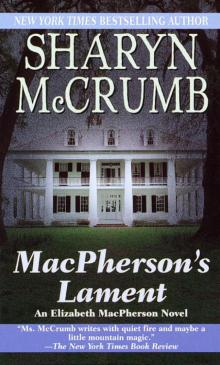 Elizabeth MacPherson 07 - MacPherson’s Lament
Elizabeth MacPherson 07 - MacPherson’s Lament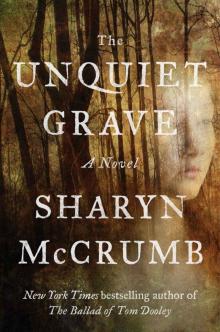 The Unquiet Grave: A Novel
The Unquiet Grave: A Novel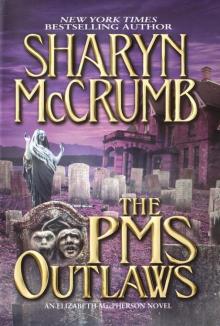 The PMS Outlaws: An Elizabeth MacPherson Novel
The PMS Outlaws: An Elizabeth MacPherson Novel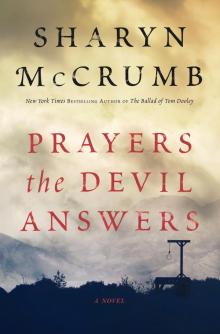 Prayers the Devil Answers
Prayers the Devil Answers Paying the Piper
Paying the Piper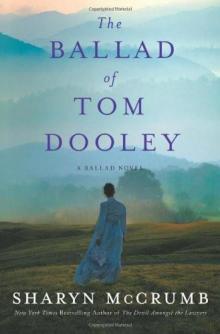 The Ballad of Tom Dooley: A Ballad Novel
The Ballad of Tom Dooley: A Ballad Novel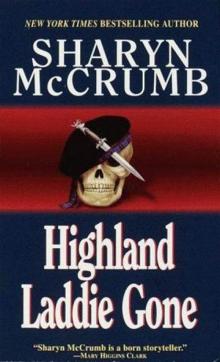 Highland Laddie Gone
Highland Laddie Gone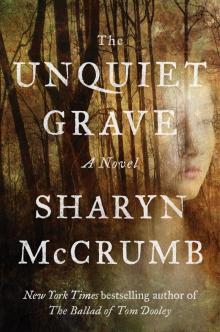 The Unquiet Grave
The Unquiet Grave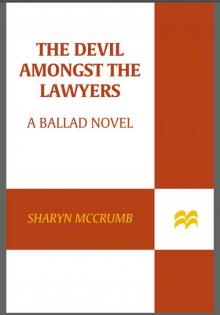 The Devil Amongst the Lawyers
The Devil Amongst the Lawyers The Windsor Knot
The Windsor Knot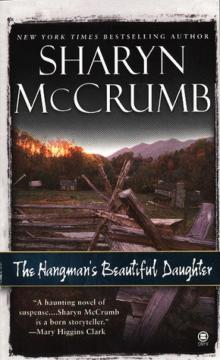 The Hangman's Beautiful Daughter
The Hangman's Beautiful Daughter MacPherson's Lament
MacPherson's Lament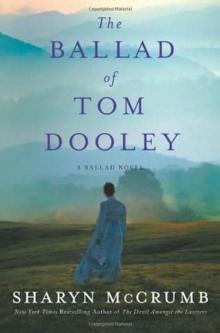 The Ballad of Tom Dooley
The Ballad of Tom Dooley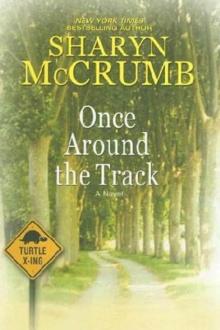 Once Around the Track
Once Around the Track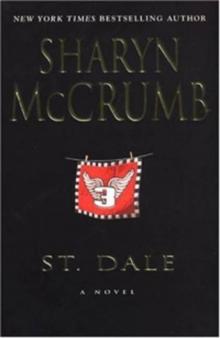 St. Dale
St. Dale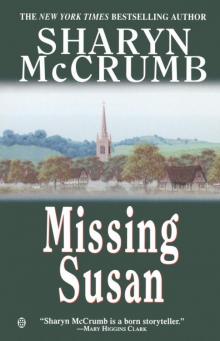 Elizabeth MacPherson 06 - Missing Susan
Elizabeth MacPherson 06 - Missing Susan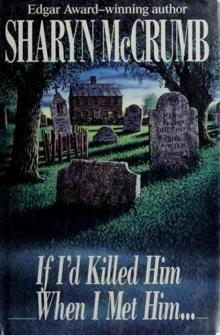 If I'd Killed Him When I Met Him…
If I'd Killed Him When I Met Him…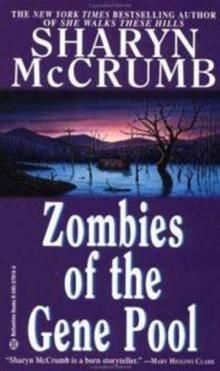 Zombies of the Gene Pool
Zombies of the Gene Pool Bimbos of the Death Sun
Bimbos of the Death Sun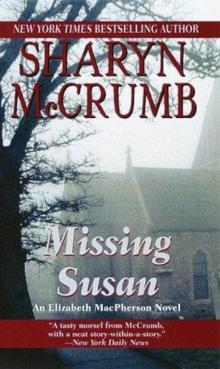 Missing Susan
Missing Susan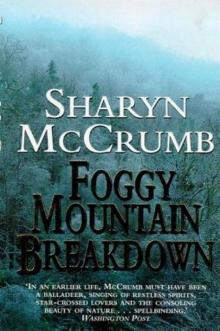 Foggy Mountain Breakdown and Other Stories
Foggy Mountain Breakdown and Other Stories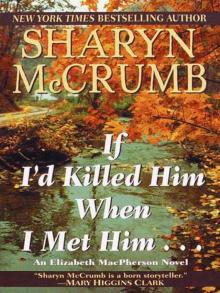 If I'd Killed Him When I Met Him
If I'd Killed Him When I Met Him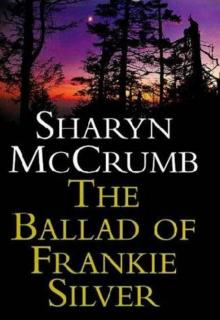 The Ballad of Frankie Silver
The Ballad of Frankie Silver Lovely In Her Bones
Lovely In Her Bones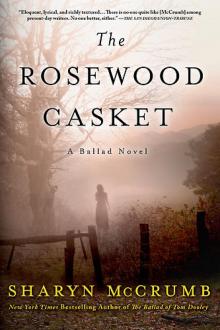 The Rosewood Casket
The Rosewood Casket King's Mountain
King's Mountain